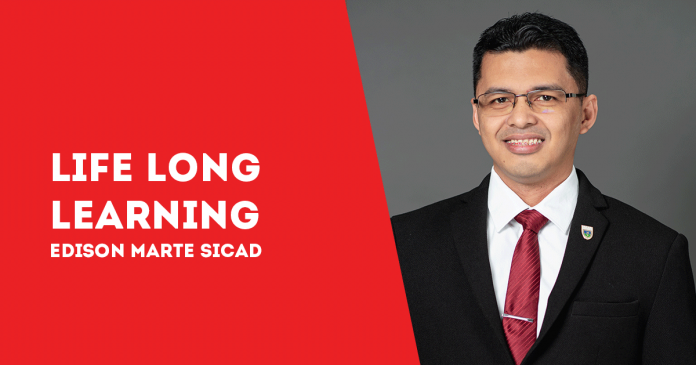
BY EDISON MARTE SICAD
FOR THE past couple of weeks, one of the trending topics on social media was graduation. Such an event created debatable issues: the money garland flexing; questionable academic research practices; and the awarding of honors to almost all graduates.
As in most debatable issues, it is a challenge to remain objective in presenting one’s ideas. Sometimes, no matter how professional a person’s comment is, there would always be someone who will misinterpret it.
The good thing about social media is that anyone has an equal chance of giving an opinion. The bad thing about it is that someone will surely be offended.
In a way, freedom of expression does not guarantee healthy and authentic communication of ideas. The social media platform itself is so inclusive that no one has the right to impose rules and guidelines as to how the discussion should happen.
In context, a money or currency garland is given on weddings as part of tradition. Generally, it symbolizes the importance of strong family ties. It also gives the bride and groom a bountiful start for their future family life.
With the money garland issue, the responsibility to explain it is with the parents. There is nothing wrong with it per se. But of course, we have to admit that others are only doing it so as not to be left-out with what is trending.
With regard to the thesis issue, there are actually some controversies surrounding it. The student, the thesis adviser, the panelist, and everything and everyone in between, can become a victim. Since there are so many factors to be considered, we can validly infer that the problem is systemic. For the controversies to be solved, we need individuals with utmost integrity.
Is there anything wrong if almost all graduates have an award? Let us just narrow down the issue to college cum laude graduates.
The giving of this latin honor (cum laude) has become a “common” achievement. The award became so normal that for a graduate to not receive one is almost like not being given a diploma. Maybe, we (really) had many brilliant and deserving graduates to receive such an award. Or it could be something else. Something more pretentious. But then, only the graduate truly knows about it.
“Giving students many opportunities to experience success and then praising them for their successes will indicate to them that they are intelligent. If they feel good about their intelligence, they will achieve. They will love learning and be confident and successful learners.” (*AMERICAN EDUCATOR, SPRING 1999).
This was part of the theory of the Self-esteem Movement that has been proving.
Psychologist Carol Dweck suggests that our focus must be in the effort—the process—and not on intelligence. In other words, the real test is in the dedication of the learner in doing the activity and not just in the outcome of the activity.
This is now very challenging because the effort of the process can already be done by artificial intelligence. All the student has to do is “edit” the file so to speak.
But how can authentic learning then be assured-or rewarded?
To parents, teachers, and students, I highly recommend that you read the research of Carol Dweck.
As I always say, the youth is the hope of the nation. But a parent or a teacher is the hope of the hope of our nation.
* This is the link to the article entitled “Caution – Praise Can Be Dangerous” by Carol Dweck as published in American Educator, Spring 1999. https://www.aft.org/sites/default/files/PraiseSpring99.pdf
This may be an old research, but its findings have become more relevant (and its warnings more dangerous) because of social media platforms and “educational” apps.
“He didn’t ask for mistake-free games. He didn’t demand that his players never lose. He asked for full preparation and full effort from them. “Did I win? Did I lose? Those are the wrong questions. The correct question is: Did I make my best effort?” If so, he says, “You may be outscored but you will never lose.” ― Carol Dweck, Mindset: The New Psychology of Success./PN



